Most of us know the stereotype about Twitter: it’s intense. People sharing their interests with a little too much passion and tearing other people apart just because of a difference of opinion. Over the summer, sophomore Anna Claywell decided to join the app and learned, first-hand, the ins and outs of it.
After a while, the app’s algorithm grouped Claywell in with what’s known as “the Stan Twitter crowd,” a group of vehement people who run fan accounts, featuring some spam accounts, dedicated to their favorite actors, musical artists, franchises, etc. Although Claywell never posts, she’s loved observing what other people do.
Fandoms, or collections of people who come together under the same shared interest, first started to become mainstream around 2010. However, the first modern fandom, as we currently define the word, can be traced back to Sherlock Holmes (first released in 1893), whose fans were called “The Sherlockians.” But, with social media today, the “modern fandom” has become even more widespread in pop culture.
Like me, sophomore Natalie Lashly has a Twitter account she uses to witness the chaos on the app. She follows accounts dedicated to Taylor Swift, Harry Styles and the band The 1975.
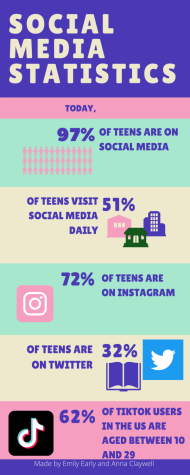
“I can be on there for hours. Their personalities draw you in. There are people that are aggressive, then people who just make jokes, then the people who the celebrities retweet. You find people with the same interests as you and make connections. But there are also people who will attack you just because of certain opinions you have,” Lashly said.
Fandoms clashing and people attacking others has always been one of Twitter’s biggest faults. Fans have a reputation for attacking people who critique their idols. While some criticisms are extreme, how would someone think the correct response to this is to send hate messages, dox, or even send death threats to someone? Especially with so many young people on the app, we must think about what they take out of it.
“I don’t think [Twitter] can be [good] for young kids. People get really passionate and attack other fandoms and people. I hope younger people don’t start bullying because of different opinions as people do on Twitter,” Lashly said.
But it’s not limited to Twitter. According to the Mayo Clinic, 97% of teens aged 13-17 consistently use a social media platform. Social media isn’t inherently a bad thing, it allows people to connect with family and friends, can help with self-expression, and can give people a voice. The problem occurs when people with influence abuse their freedom of speech on social media for everyone, including kids, to see. Kids and young teens tend to repeat the words and actions they’ve heard and seen, so when they’ve been so exposed to people casually harassing others on the internet, some will inevitably think it’s an okay thing to do. While many will grow out of this phase and realize teasing others over shallow opinions isn’t good, even just one hateful comment can affect a person forever.
Before taking sides on a Twitter feud, to the point where you are blindly loyal to one side and won’t stop and think before hitting “post,” remember that criticism is often warranted, and that by putting something out on social media, you are allowing for public opinion to weigh into the situation. Conversely, there is a line between posting criticism, or taking sides in a friendly debate, versus leaking personal information to get back at someone, or even sending a death threat. The more that technology and social media are integrated into our lives, the blurrier those lines become between reality and online culture. The more acceptable it will become to act poorly off of the screen.
Twitter, Instagram, Reddit, TikTok, Facebook and dozens of other platforms find a certain environment, one that is much different than the world outside of a screen. It’s as if the rules don’t apply whenever people are online. People act differently with every single comment, share, and repost. It’s not just teenagers, either. It’s pretty common to find two grown adults in a 40 comment long feud over something ridiculously minuscule. And when a celebrity or public figure is involved? There seem to be no limits.
There are countless scenarios of celebrities being, both rightfully and falsely, called out. Whether the reason turns out to be true or not, any topic takes minutes to spread across the internet. But why does anyone post? It all comes back to the behavior from the internet in general. To gain attention. To allow our opinions to gain traction and influence others. But our platforms can be, and often are, abused. When the main goal is to see your “activity page” filled with notifications and your followers build up, it doesn’t matter what kind of traffic your platform receives. Attention should not always have such a negative connotation to it, but the truth is, when people intentionally create an unnecessary subject to talk about in order to gain said attention, it can be and most likely is detrimental, but is a fundamental flaw in today’s online standards.
However, social media attention seekers wouldn’t trend without people liking their comments on the newest drama. They would not have as big of a voice without everyone in their audience listening. People are innately curious, and controversy online fuels their curiosity and creates interest. Take the Parkway West Parent’s Facebook page for example. A group that could be used to connect, plan and create student-related activities is filled with complaints and passive-aggressive comments targeting faculty, teachers and even students and their families.
Social media is like this generation’s People magazine, but instead of only gossiping with a small group of friends about it, now people can like, comment, and share quicker than ever, with more people than ever.
Despite all of the harmful sides to these apps and websites, social media has the potential to be and is often used for amazing things. Without it, our world would be entirely disconnected from the way it is today. It allows for instantaneous communication with almost anyone in the world. However, we need to hit the brakes when platforms are being used abusively or to hurt someone. If we go too far, there might not be a way to come back from it. Our society, especially with the intensity of cancel culture, is incredibly talented at immediately shutting something or someone down. “Canceling” someone is not always the solution though. We’ve seen people welcomed back after accomplishing something deleterious in the public eye. And what’s stopping them from creating a new anonymous account, just to target the same people, the same topics, under a different username? Despite attempts to cancel people, we still allow rumors to spread and hateful comments to proliferate. This is something that, as a human race, we’ve accepted. Oftentimes the effects of canceling someone are not necessarily what we want them to be. It’s become so normalized that it doesn’t actually educate the wrongdoer in their actions. Instead of attacking a person, we can approach by explaining or offering resources.
As the Internet is becoming more and more ingrained and necessary in our lives, we need it to be safe and usable for everyone. So let’s think before we furiously head to the comment section or become bystanders of mistreatment on the internet. Let’s talk to each other face-to-face when there’s an important issue, because a public argument is not going to solve the problem. Be careful of how transparent the word “anonymous” is. We get to form internet culture as it develops. We have control here, and we should be using it wisely.

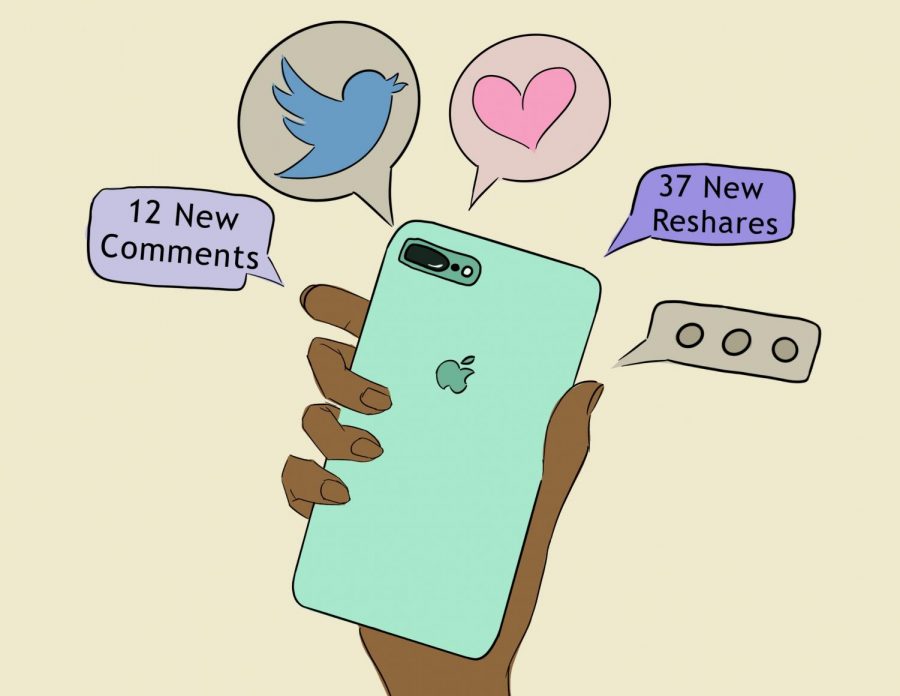


![Junior Fiona Dye lifts weights in Strength and Conditioning. Now that the Trump administration has instituted policies such as AI deregulation, tariffs and university funding freezes, women may have to work twice as hard to get half as far. "[Trump] wants America to be more divided; he wants to inspire hatred in people,” feminist club member and junior Clara Lazarini said.](https://pwestpathfinder.com/wp-content/uploads/2025/05/Flag.png)
![As the Trump administration cracks down on immigration, it scapegoats many immigrants for the United States’ plights, precipitating a possible genocide. Sophomore Annabella Whiteley moved from the United Kingdom when she was eight. “It’s pretty scary because I’m on a visa. When my visa expires next year, I’m not sure what’s going to happen, especially with [immigration] policies up in the air, so it is a concern for my family,” Whiteley said.](https://pwestpathfinder.com/wp-content/uploads/2025/05/DSC_0077-7copy.jpg)
![Shifting global trade, President Donald Trump’s tariffs are raising concerns about economic stability for the U.S. and other countries alike. “[The tariffs are] going to pose a distinct challenge to the U.S. economy and a challenge to the global economy on the whole because it's going to greatly upset who trades with who and where resources and products are going to come from,” social studies teacher Melvin Trotier said.](https://pwestpathfinder.com/wp-content/uploads/2025/05/MDB_3456-1200x800.jpg)



![Some of the most deadly instances of gun violence have occurred in schools, communities and other ‘safe spaces’ for students. These uncontrolled settings give way to the need for gun regulation, including background and mental health checks. “Gun control comes about with more laws, but there are a lot of guns out there that people could obtain illegally. What is a solution that would get the illegal guns off the street? We have yet to find [one],” social studies teacher Nancy Sachtlaben said.](https://pwestpathfinder.com/wp-content/uploads/2025/01/DSC_5122-1200x800.jpg)

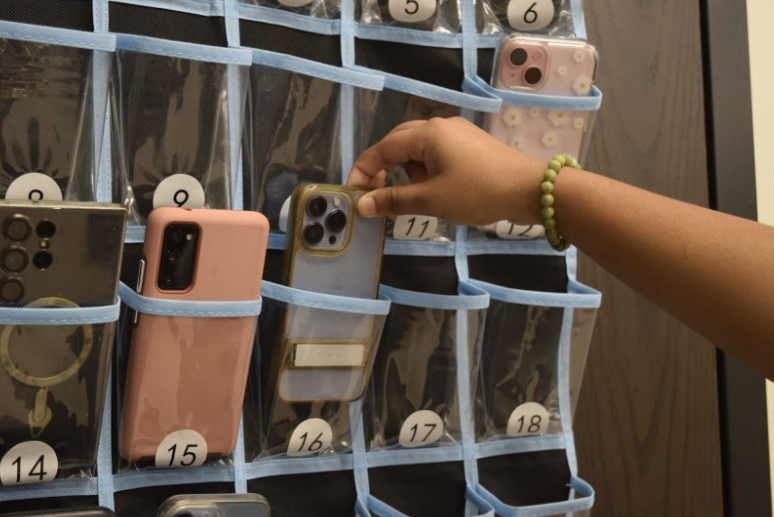
![Making up a large portion of the film industry, many popular movie remakes and sequels have been released recently. Similar to film remakes, theater teacher Amie Gosset often uses play adaptations of famous movies for theater productions. “It’s challenging because people have an idea of what the film is, whether it’s an iconic film or one they really liked. [Consumers] come in with a preconceived notion of how the [film] should be. Then, [they] are either surprised because they like the new version or disappointed because it’s not what they’re used to.”](https://pwestpathfinder.com/wp-content/uploads/2024/12/DSC_0042-1200x801.jpg)


![Pitching the ball on Apr. 14, senior Henry Wild and his team play against Belleville East. Wild was named scholar athlete of the year by St. Louis Post-Dispatch after maintaining a high cumulative GPA and staying involved with athletics for all of high school. “It’s an amazing honor. I feel very blessed to have the opportunity to represent my school [and] what [it] stands for,” Wild said.](https://pwestpathfinder.com/wp-content/uploads/2025/05/unnamed-6-1200x714.jpg)
![Red, white and blue, the American flag holds the values of our democracy. The fight that we once endured has returned, as student journalists and senior correspondents across the country are losing their voices due to government control. “[Are] the White House and [the] government limiting free speech [and] freedom of the press? Yes [they are],” chief communications officer of the Parkway School District and former journalist Elisa Tomich said.](https://pwestpathfinder.com/wp-content/uploads/2025/03/Untitled-design-14.jpg)
![Freezing in their position, the Addams Family cast hits the “rigor mortis” pose after cast member and senior Jack Mullen, in character as Gomez Addams, calls out the stiff death move. For the past four months, the combined company of cast members, orchestra pit, crew and directors all worked to create the familial chemistry of the show. “I’m excited for [the audience] to see the numbers, the music, the scenes, but I also just love all the technical aspects of it. The whole spectacle, the costumes, makeup and the people that put in the work backstage in order to make the show successful on stage. I’m excited for people to see and appreciate that,” Mullen said.](https://pwestpathfinder.com/wp-content/uploads/2025/03/DSC0116-1200x800.jpg)
![A board in the Parkway West counseling department displays pennants of selective universities. With a wide range of students interested in attending, it’s important that these schools have clear priorities when deciding who to admit. “[Washington University] had the major that I wanted, psychology, philosophy, neuroscience. That's a holistic study of the brain, and [WashU is] the only college in the world that offers that. That's the main reason I wanted to go; I got into that program,” senior Dima Layth said.](https://pwestpathfinder.com/wp-content/uploads/2025/02/Flag-1.png)
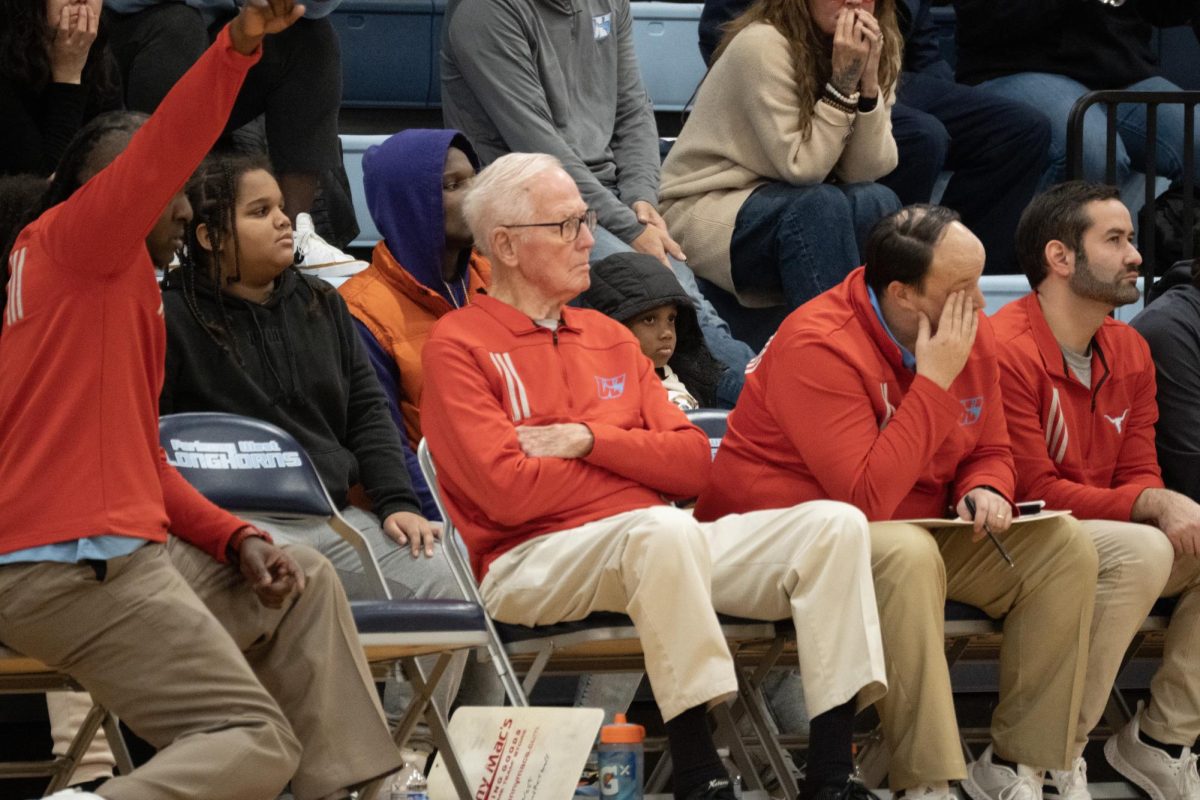
![Within the U.S., the busiest shopping period of the year is Cyber Week, the time from Thanksgiving through Black Friday and Cyber Monday. This year, shoppers spent $13.3 billion on Cyber Monday, which is a 7.3% year-over-year increase from 2023. “When I was younger, I would always be out with my mom getting Christmas gifts or just shopping in general. Now, as she has gotten older, I've noticed [that almost] every day, I'll open the front door and there's three packages that my mom has ordered. Part of that is she just doesn't always have the time to go to a store for 30 minutes to an hour, but the other part is when she gets bored, she has easy access to [shopping],” junior Grace Garetson said.](https://pwestpathfinder.com/wp-content/uploads/2024/12/DSC_0249.JPG-1200x801.jpg)
![Complex global supply chains supply the goods for everyday luxuries, such as the coffee at West High’s Blue Brew. Low tariffs enabled much of the prosperity of modern history. “Higher tariffs lead to higher costs. A tariff is a tax on an imported good, and someone has to pay for that tax, and typically that [will] end up impacting consumers,” economics teacher Rachel Money said.](https://pwestpathfinder.com/wp-content/uploads/2024/12/Flag-1.png)
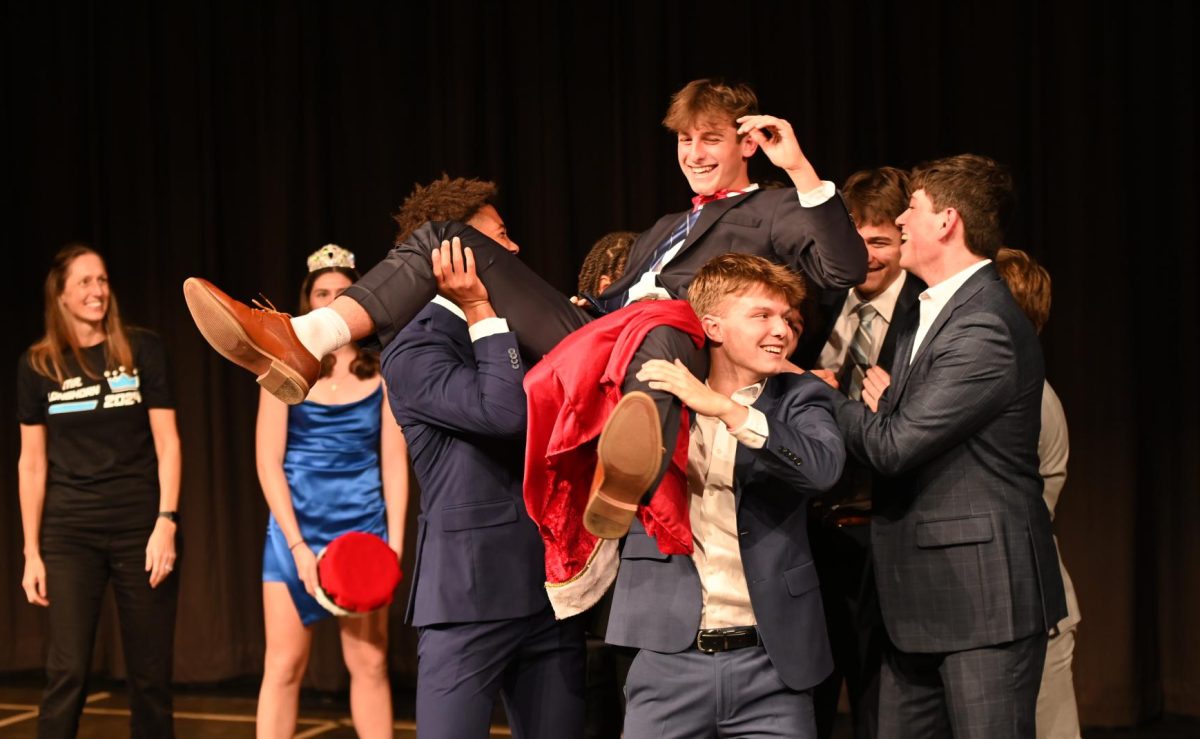


Michele Lashly • Oct 4, 2021 at 7:24 pm
You have written a very thought provoking and interesting article. I agree that we are all responsible for internet culture. Way to go, Anna and Emily!
James • Oct 4, 2021 at 6:52 pm
This was really impressive and just about blew up my tiny mind! Great work lol
Katie Wallace • Oct 4, 2021 at 5:33 pm
This is super well-written! I love how you kept your story entertaining while still presenting a lot of information. The photo illustrations are great too 🙂
Sharon Early • Oct 4, 2021 at 3:18 pm
Great article Anna and Emily!
Joel May • Oct 4, 2021 at 1:34 pm
A dynamic I have been thinking about lately regarding this topic are professional trolls. I often wonder about that as I read through comments on YouTube.
Anyway, great article. Thanks for sharing your ideas.
Wonderful job Anna and Emily.
Achyuta Ambal • Oct 4, 2021 at 12:20 pm
This is a really cool article: really fact-based but not overwhelming. Nice 🙂
skye • Oct 4, 2021 at 12:14 pm
i love it! amazing job anna and emily:)